Porsche Panamera Turbo
This is a Porsche like no other. Ouseph Chacko guns the big Panamera through the deserts of the UAE to find out how much of a luxury express it is.
Published on Dec 15, 2009 08:00:00 AM
6,601 Views
Follow us on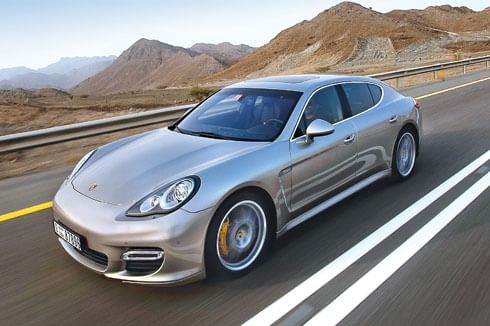
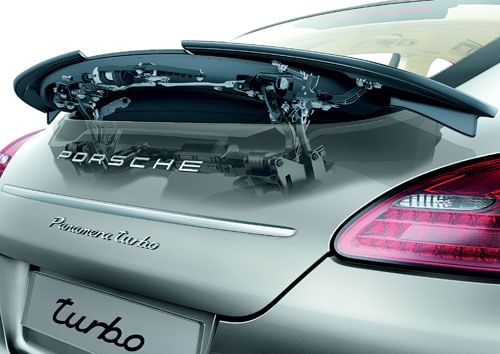
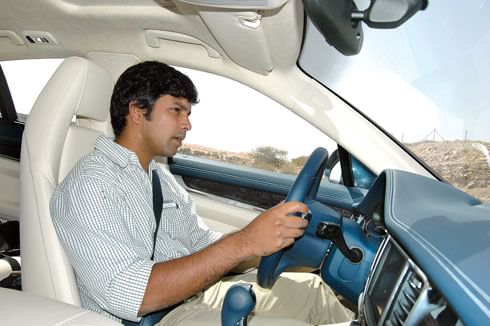
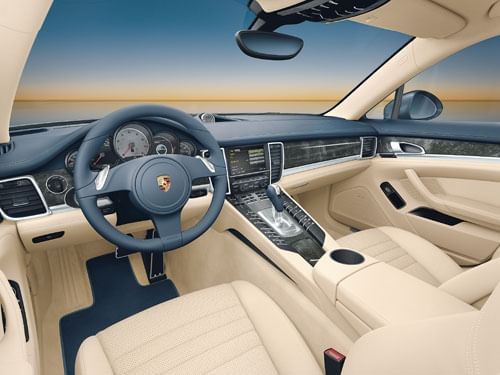
THERE ARE APPROXIMATELY 900 speed cameras in Dubai, every one of them waiting for my right foot to make a tiny little error, and it’s incredibly frustrating. All afternoon I’ve had 493bhp under my right foot, six lanes to play with and a pansy 120kph speed limit that was really getting on my nerves. Just as thoughts of a Malayalee-led revolution in Dubai were crossing my mind, it happened.
The three cars ahead disappear and all I can see is black tarmac stretching into the shimmering desert ahead. What happened next I swear wasn’t my fault, it was the Porsche’s. Throttle meets floor, the twin-clutch gearbox snaps down three gears and there’s a massive whoosh as the rear tyres squat and the seat slams into my back. The engine now sounds like a thunderstorm reunion that’s run into a tornado and the speedo needle is sweeping across the gauge as fast as I can call out speeds. 210…220…230… a few seconds later, the speedo reads 273kph. There’s still no let up in the acceleration! That’s when I remember reading that the UAE owns 26 Apache helicopter gunships. A frighteningly real mirage of one of them in the mirror makes me back off. Double quick.
Meet Porsche’s new Panamera. It can outrun the gunship (top speed: 303kph) and is Porsche’s first four-door, four-seater hatchback. It’s a very fast luxury car in the vein of the Maserati Quattroporte, BMW M5 and Jaguar XFR. No other luxury car looks quite like the Panamera and no other is quite so sporty either. It’s got four doors, four seats, a reasonably big boot under that rear hatch and in this big horsepower version, a 4.8-litre twin-turbocharged, direct-injection petrol engine up front.
Porsche wants it to be a mix of sportscar, saloon and estate, let’s see how well it plays these roles.
It’s obvious that Porsche didn’t want to take the Porsche out of a Panamera. Dynamically, it’s fantastic. On the roads to Fujeirah you come upon some perfectly cambered, beautifully surfaced corners — roads where a 911 would be at home. The Panamera never feels as big as its near five-metre length would suggest. It’s tight, responding to small steering inputs like a hound after a hare. Grip is fantastic thanks to the all-wheel-drive system and the adaptive air suspension cancels body roll, sometimes to unnatural levels. This dynamic behaviour comes from the fact that the centre of gravity is so low. To keep the weight closer to the ground, the Cayenne-based engine has a flatter oil sump allowing it to be mounted lower, the front driveshafts run through the crankshaft, rather than under the engine and the seats are placed low. It’s like every bit of this car was designed to hug the ground.
As a saloon, it’s impressive. What I didn’t expect was for the rear seats to be so spacious and comfortable. You have to stoop and contort a bit to get in but once you are there, it’s very comfy. You see, having a high centre tunnel running through the length of the cabin has its advantages. It makes for two individual chairs in the back that are widely adjustable in a way that a bench can’t be. Legroom doesn’t look as expansive as a BMW 7-series or Merc S-class (although Porsche would like you to think so), but there’s a lot more than you would expect from the low, stealth shape.
Interior quality is fantastic. There isn’t one piece of plastic I don’t like or one switch that felt poor and though there are one too many switches around the gear lever, every function of this car is a press of a button away — there are no complex menus to navigate through.
You sit really low in this car, and there’s this fantastic feeling of snugness because of the high centre tunnel. You sit so low that it’s a bit difficult to judge the extremities of the car, and the coupe-like roof makes it hard to see out the back when you want to reverse — a compromise for all that dynamic ability. It definitely won’t be easy to navigate through rickshaws and taxis.
On the UAE’s smooth roads, it rides well but we’re waiting to see how it will ride on India’s sterling roads. The engine is quiet when cruising, the PDK gearbox shifts smoothly and the gearbox mapping is well-judged. At lower speeds the PDK occasionally feels clunky, but it’s not terribly so. It’s easy to convince yourself that you are in a proper uber-luxury saloon when the driver isn’t pushing hard.
Comparing it to an estate would be a bit of a stretch and in fact its 432 litres of boot space is less than most big saloons. However, as is, there’s decent boot space and the rear seats can be dropped individually to improve space.
This Porsche is now in Indian showrooms and at the ex-showroom prices of Rs 1.5 crore for the base 4.8 two-wheel-drive Panamera S, Rs 1.56 crore for the Panamera 4S and Rs 2.15 crore for the Panamera Turbo, it makes cars like the regular S350 and the BMW 750 Li look like bargains. But it’s a Porsche and a more practical one at that and for this reason alone, I think it has tremendous potential. It’ll be fantastic fun in India — imagine, near-500bhp and no speed cameras. Then again we don’t have the roads like the UAE either.
Tech Specs 
Copyright (c) Autocar India. All rights reserved.

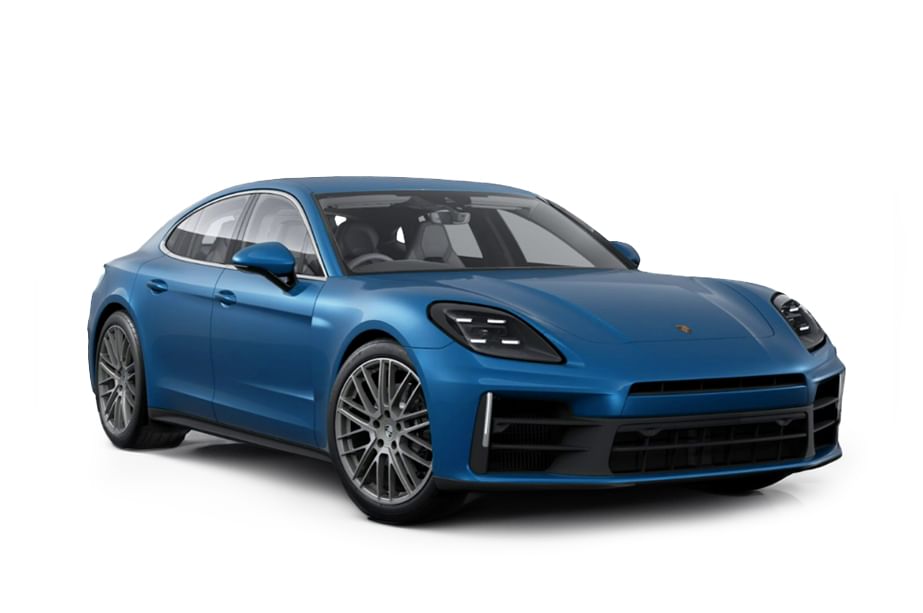


.png?w=234&h=156&q=90&c=1)




.jpg?w=234&h=156&q=90&c=1)
 Price
Price Engine
Engine Body
Body Dimensions
Dimensions
Comments
Member Login
Personal Details
No comments yet. Be the first to comment.